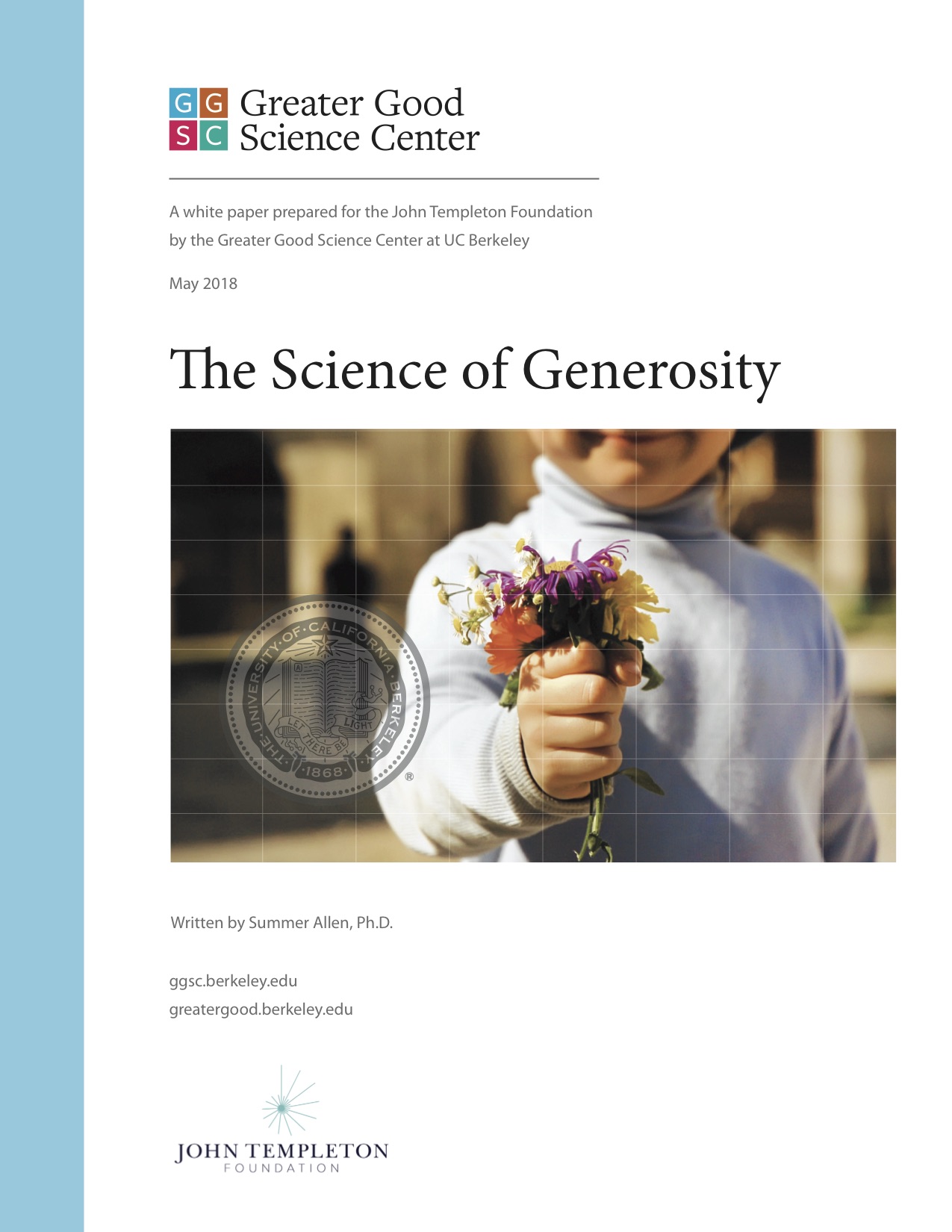Virtue White Papers
Since the Greater Good Science Center was founded in 2001, we have seen a dramatic spike in research exploring our areas of interest: Each year, the number of studies related to "the science of a meaningful life" continues to climb.
Keeping track of all this research can be a great challenge—it's not easy to stay on top of hundreds upon hundreds of studies, make sense of conflicing results, and tease out the broader lessons from many disparate findings.
That's why the GGSC partnered with the John Templeton Foundation (JTF) to produce a series of white papers on several "character virtues" that are of great significance to both the GGSC and JTF. Each paper synthesizes decades of research and hundreds of studies, summarizing the results from many specific papers while also identifying larger scientific trends and key insights that have emerged over time. They are far more exhaustive than any single article or collection of articles from our Greater Good online magazine—yet far easier to digest than the innumerable and often lengthy studies on which they report.
Whether you read these papers in their entirety or zero in on particular sub-topics of interest, they should significantly enhance your understanding of these research areas—and also elucidate the practical implications of this research for health, relationships, families, schools, and beyond.
Below are the five papers that we produced as part of this initiative.
The Science of Generosity
Humans are a generous species. That statement seems to fly in the face of decades of research—and centuries of conventional wisdom—that has equated “human nature” with selfishness and aggression. Yet in recent years, a more complex and nuanced understanding of human nature has emerged.
This white paper explores the deep roots of human generosity, the varied and sometimes surprising benefits of generous behavior, and the individual, social, and cultural factors that can give rise to and influence generosity.
The Science of Gratitude
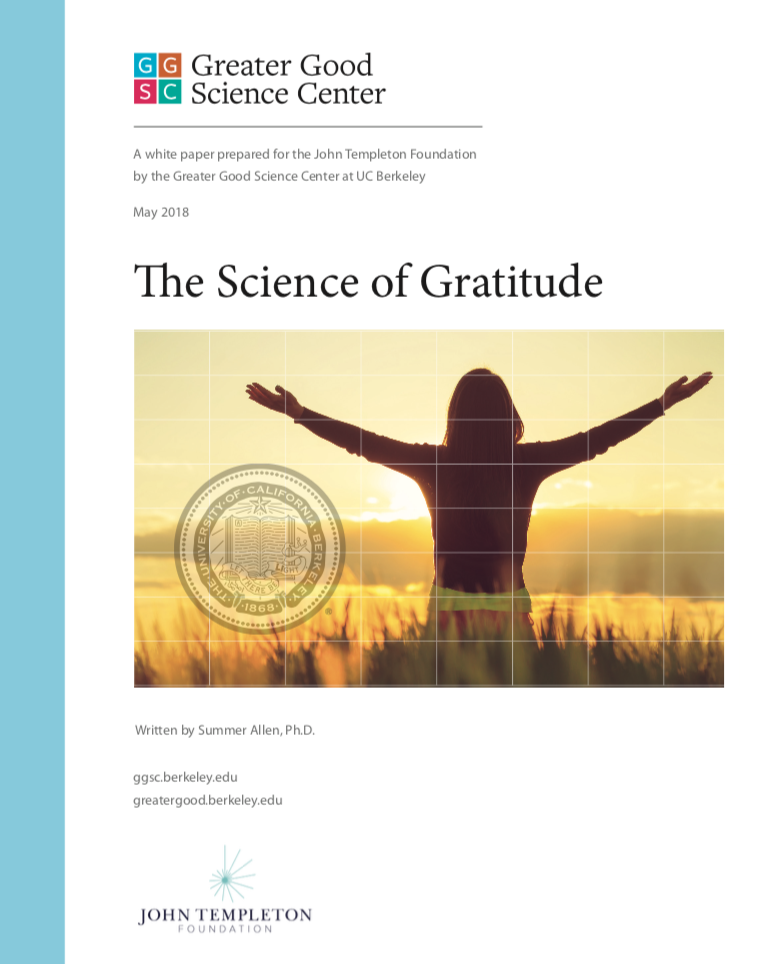 Most people have an instinctive understanding of what gratitude is, but it can be surprisingly difficult to define. Research has made clear that gratitude is more than just the occasional "thank you."
Most people have an instinctive understanding of what gratitude is, but it can be surprisingly difficult to define. Research has made clear that gratitude is more than just the occasional "thank you."
This paper clarifies the scientific definition of gratitude, the factors that contribute to a grateful disposition and grateful behavior, the fruits we can reap by practicing more gratitude, and the specific ways that, according to research, we can effectively cultivate more gratitude in our lives.
The Science of Awe
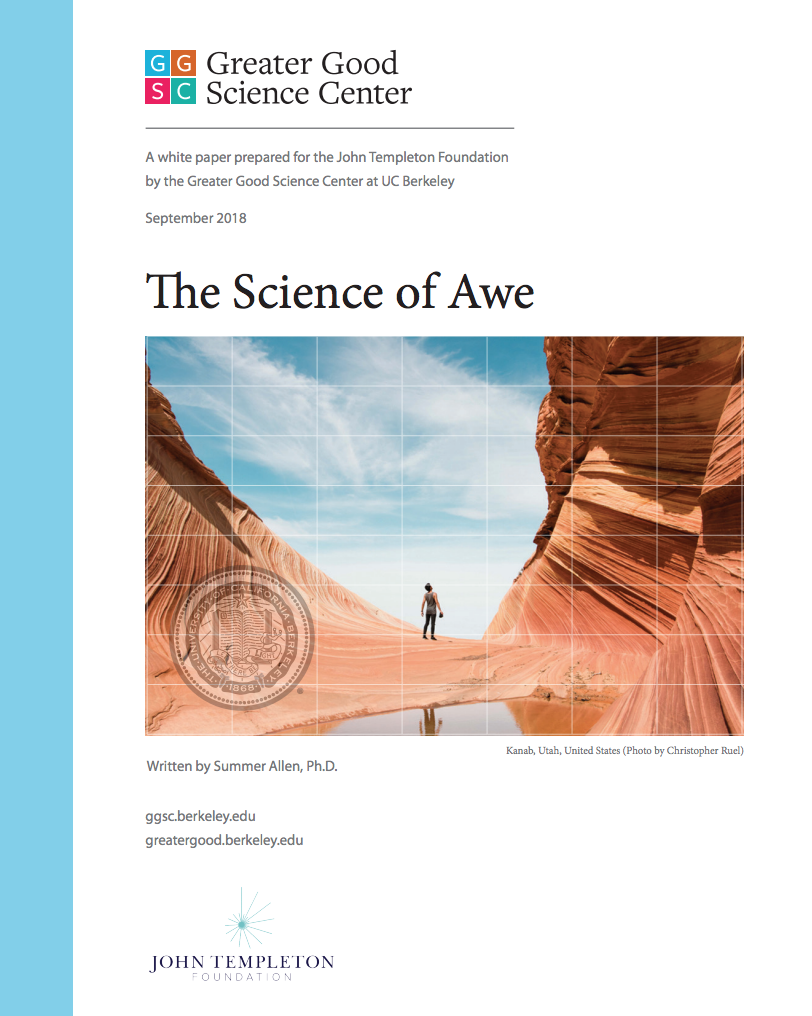 While philosophers and religious scholars have explored awe for centuries, it was largely ignored by scientists until the early 2000s. Since then, there has been growing interest in exploring awe empirically. This has led to a number of fascinating discoveries about the nature of awe, while also raising many questions still to be explored.
While philosophers and religious scholars have explored awe for centuries, it was largely ignored by scientists until the early 2000s. Since then, there has been growing interest in exploring awe empirically. This has led to a number of fascinating discoveries about the nature of awe, while also raising many questions still to be explored.
This paper highlights some of the most exciting and
awe-inspiring findings to date.
Positive Neuroscience
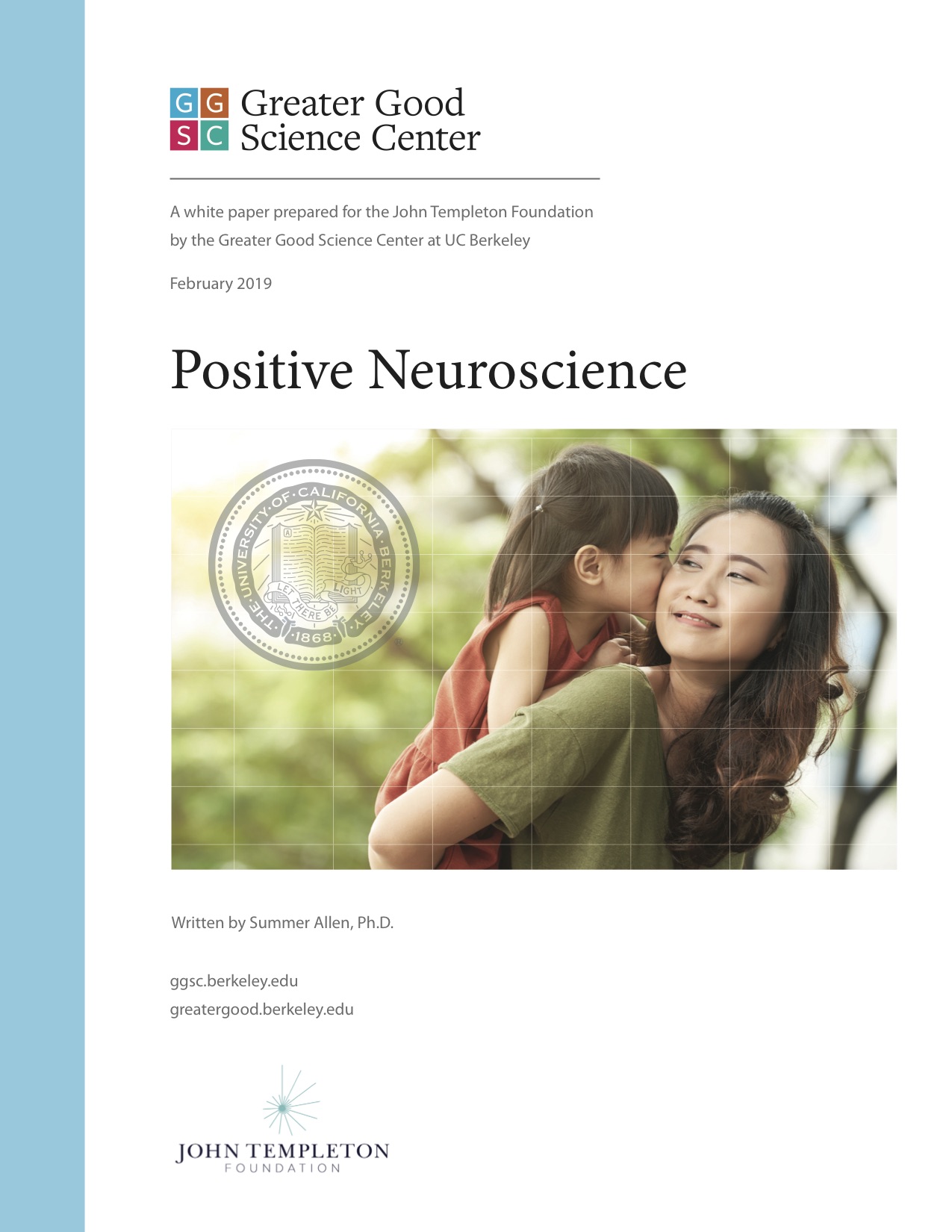 How do our brains help foster our capacity to flourish in the face of adversity, show kindness to those in despair, and enjoy life to the fullest? An emerging field of study—positive neuroscience—aims to answer these questions.
How do our brains help foster our capacity to flourish in the face of adversity, show kindness to those in despair, and enjoy life to the fullest? An emerging field of study—positive neuroscience—aims to answer these questions.
This paper explores the promising, growing, and sometimes provocative findings emerging from this area of research.
Future-Mindedness
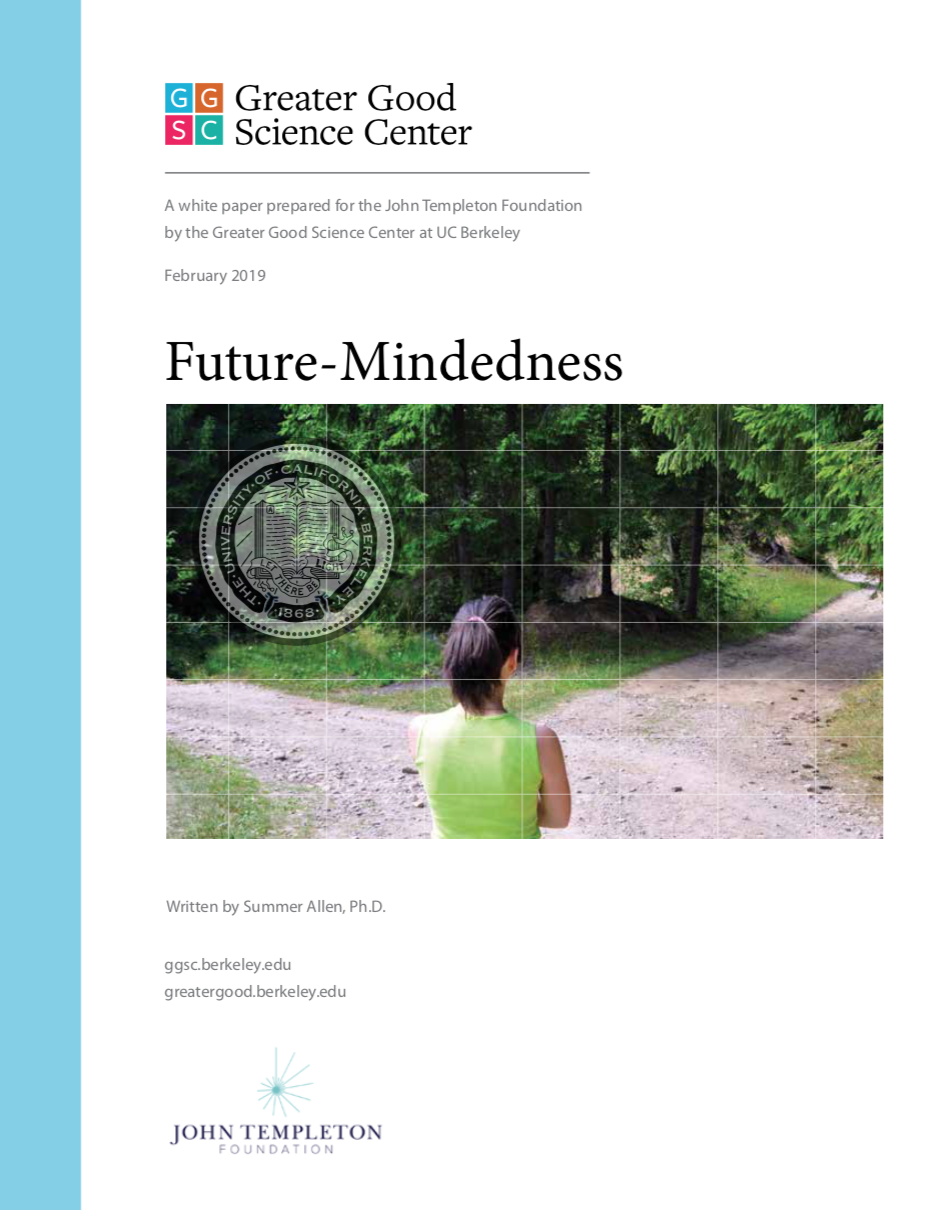 Thinking about the future—and all the possible forms it may take—is a skill that we often take for granted. But some researchers suggest that the ability to think about the future (also called “prospection”) is important for understanding how humans set goals, make decisions, and treat other people.
Thinking about the future—and all the possible forms it may take—is a skill that we often take for granted. But some researchers suggest that the ability to think about the future (also called “prospection”) is important for understanding how humans set goals, make decisions, and treat other people.
This paper explores what is known about the neuroscience of prospection, the benefits that can come from thinking about the future, and what happens when prospection goes awry
